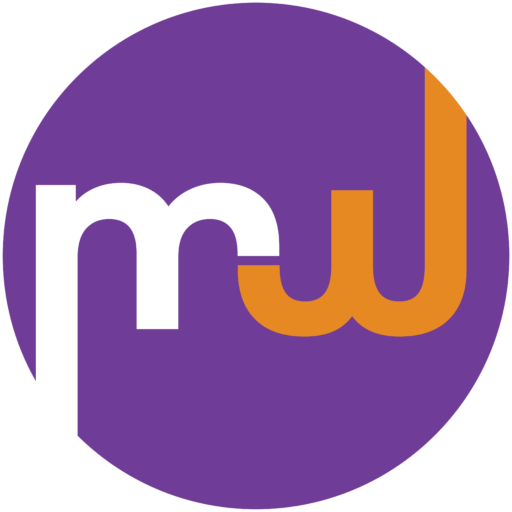This current generation of students will likely never know a life or educational experience without Artificial Intelligence (AI). Similarly, GenZ students do not know a life without social media or cell phones.
AI is so new to everyday life that educators can shape and model how today’s learners apply it to their education. While there are certainly things to be wary of in leveraging mobile devices and AI in education, there are many ways in which it can be used to improve the lives of students, families, and teachers.
This is particularly true for neurodivergent students, who often require accommodations, training, and support to make sufficient progress toward their post-secondary goals. These five (5) ideas are great places to start utilizing AI during post-secondary transition planning work and promise quick, ethical, low-prep/high-impact ways to expand independent living and learning opportunities.
Tip 1. Use AI to Build Planning Lists
Planning for large projects or activities is a critical Executive Function that takes time and practice to develop. Any enormous task can be broken down into many small steps. AI is a great tool to help kids do this process independently.
For example, when working on post-secondary employment or education goals, a student could ask AI to “generate a list of colleges with a music major,” or “generate a list of scholarships with (certain criteria that they may fit),” “make a list of optimal nighttime routines to have adequate sleep,” or even a list of accommodation ideas for school or work that may fit their specific needs.
Generating lists for various scenarios and settings can create greater self-advocacy, independence, and capability. It can be applied in countless ways for learners of all ages in school and life.
Tip 2. Use AI to Expand Their Interests
Students’ attention and engagement significantly improve when they complete assignments based on their interests. Knowing where to start or how to keep everything organized can still be overwhelming.
AI is an effective tool to remove barriers to oral and written expression and vocabulary knowledge or recall, or even planning and producing a multi-step project. For some, AI can serve as a type of interactive graphic organizer.
For example, suppose students are asked to write a report on the impact of climate change on an unfamiliar location. While they may love talking about weather, the student would utilize AI to assist with some of the more daunting pieces of their project, such as information gathering and organization of ideas. Queries could range from “Give me a summary of how humans have impacted the weather in Buffalo, NY,” or “Give me a step-by-step process for writing an expository essay that is easy for beginners to understand,” or even “Give me a bulleted list of the process by which the Coral Reef has changed.” The options are truly endless.
Tip 3. Use AI to Communicate
AI tools can reduce overwhelm and uncertainty for some students. They can use AI’s interpretation and writing skills to complete daily written response tasks.
For school communications, students can make requests such as, “Create an email response to Ms. [Teacher’s name] thanking her for the offer to do extra credit and asking if I can turn it in by [date].”
For work communications, students can ask AI to “Write an email to the manager at Macy’s, [name], thanking her for answering my questions in the store yesterday and asking if there will be any temporary holiday sales jobs opening soon.”

Tip 4. Use AI to Secure INDEPENDENT Living
Using search engines like Google to find accessible places to live, work, and visit can be a giant task. AI can reduce unnecessary information by only generating information about the most accommodating or accessible places.
Transfer power to your students and reduce their need to rely on parents, case workers, and assistants. Students can utilize AI to list their needs and preferences and then ask for housing recommendations or vacation destinations that might fit the bill.
Not many people may know that Mesa, Arizona, is the first Autism certified city in the United States. It was designed to include a network of hotels, museums, and restaurants with staff trained in some everyday needs of those with Autism and experiences designed to be sensory-friendly. Instead of attempting to fit themselves into spaces not designed with them in mind, with AI, students are self-empowered to learn about Mesa and other places or programs that can suit their needs.
Prompts students could ask AI include, “Generate a list of apartment complexes that include a 24/7 doorman to assist with any questions or concerns, in walkable cities, that have public transportation, or have lower rates of traffic to reduce overwhelm and increase access to the spaces around the area,” and even “what are the best places to work for 16-year-olds with (specific disability) in Baltimore.”
Whether it is a Career Planning class, a lesson on post-secondary opportunities, or a Life Skills class, incorporating AI can help ease the daunting task of research and excite students about opportunities specific to their needs.
5. Use AI to Write a Resume
AI can help students seeking jobs or volunteer opportunities to create high-quality resumes. Numerous resume-specific AI tools will format documents and generate clear, concise descriptions of previous work experiences.

Students can include a list of their previous school or work experiences and ask AI to elaborate with a query such as, “Write a paragraph about my leadership experience as a Student Council member that includes the following: set up and cleaned up for homecoming dance in 2023 and 2024, raised $1,250 for March of Dimes at the bake sale, advertised for 5K charity walk to get 200 people to join, helped count votes in student elections.”
Students can also make general requests such as, “Write a description of the type of experience I got while working at a landscaping company for two summers with a crew of five other people.”
While AI might not always generate the most applicable or accurate responses to students’ queries, it can provide options for wording or phrases that students may not have considered before that can support their generation of a well-rounded and descriptive resume.
Limitless Learning
Like any other new skill, teaching students how to craft an inquiry that will produce the desired result from AI may take some time. What better way to get kids excited about getting “meta.” This is a real-life lesson, just like any other. It can significantly impact students’ lives, empowering them with one more tool in their toolbox to navigate post-secondary life with self-determination and independence.
MindWorks Collaborative would love to invite you to learn more. Join future conversations on this topic by signing up for our community of justice-driven special educators here and sign up to get alerts for our next roundtable.


Recent Comments